Tommy Cash Dropped a New Single, but Who Really Gives a Shit?
Watch the new music video below.
Stay informed on our latest news!
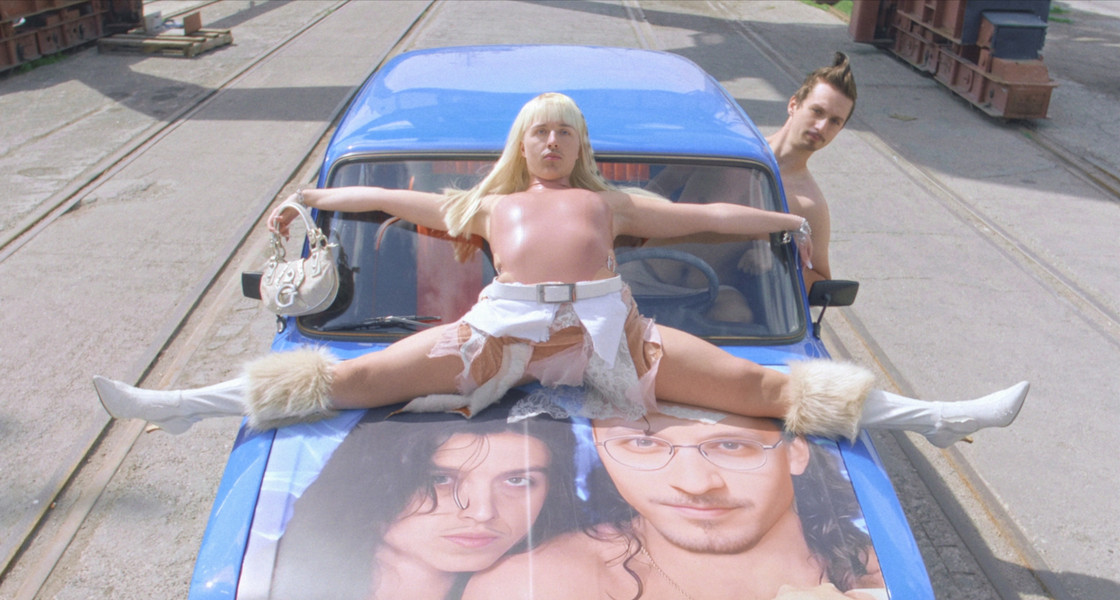
Watch the new music video below.
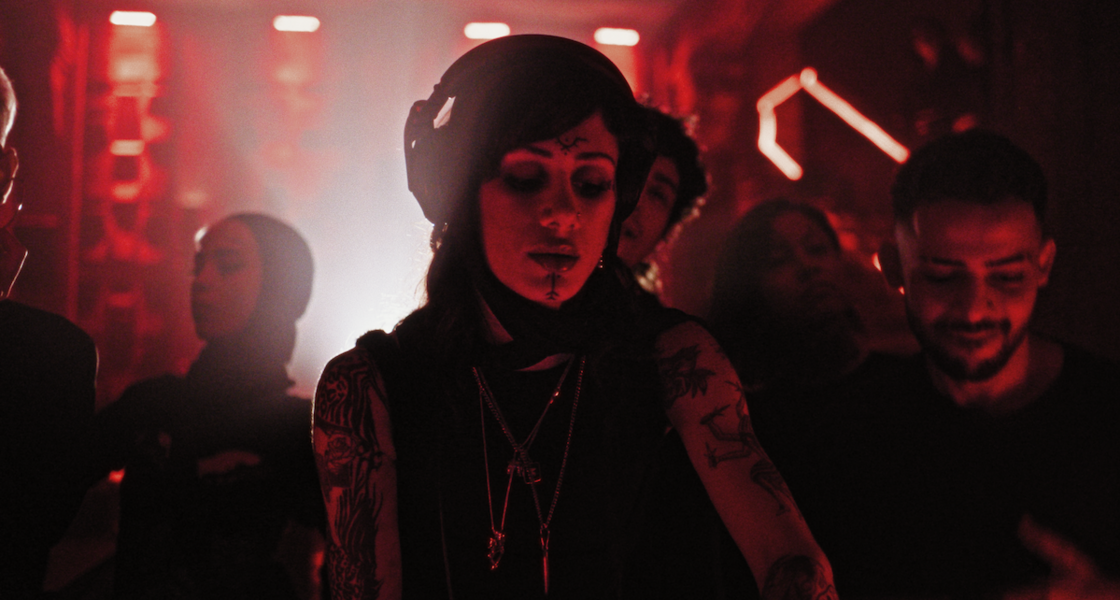
The opening scene combines the muted sounds of chaos against the labored breaths of a young girl surrounded by the remnants of a riot in a city on fire. “To put a child at the center of it adds to the seriousness of what’s happening. That’s the genesis of the entire film… we never go back. It’s about finding a city at its phoenix moment,” she says. From there, the viewer is transported alongside a group of women through winding roads and valleys at sunset to hammams, futuristic cityscapes, and underground clubs. Led by hypnotizing Turkish sister dancer duo İlayda İpekçi and Aybike İpekçi, it’s disordered, disruptive, and disarming at the same time, blurring the lines between rage and relief while urging us to question what it means to be living in a reality riddled by its past and on the brink of a new future. “What does freedom actually mean? What is the psychological experience of someone who’s now on the other side?” asks Abbas.
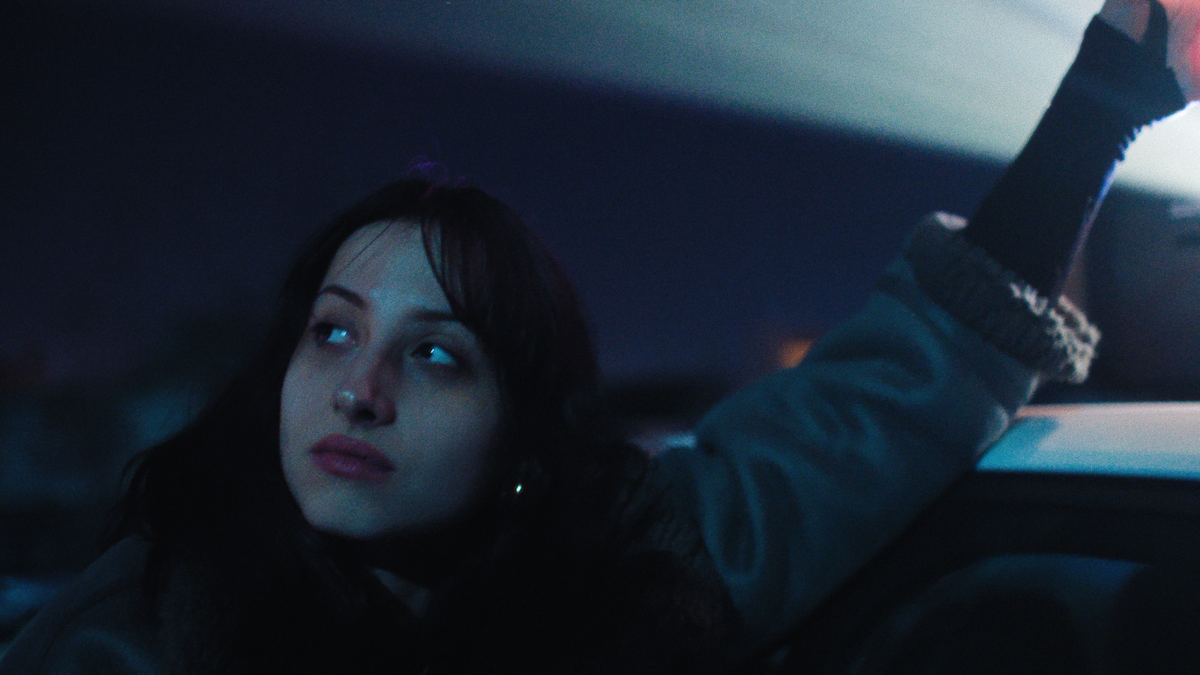
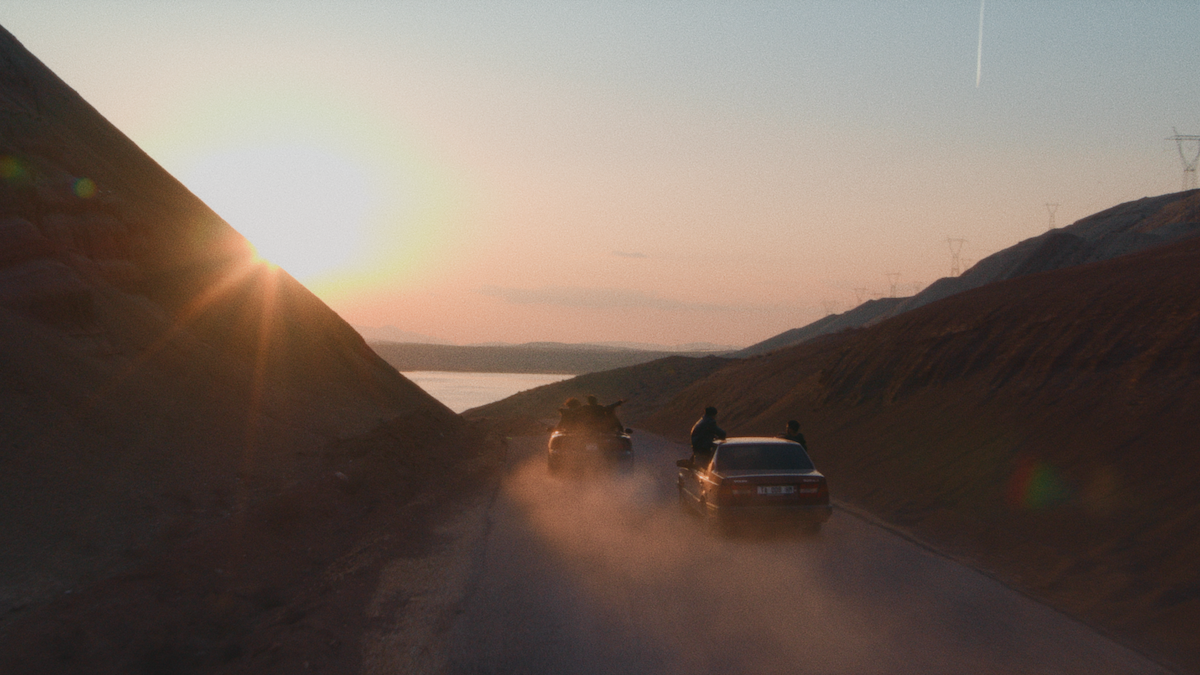
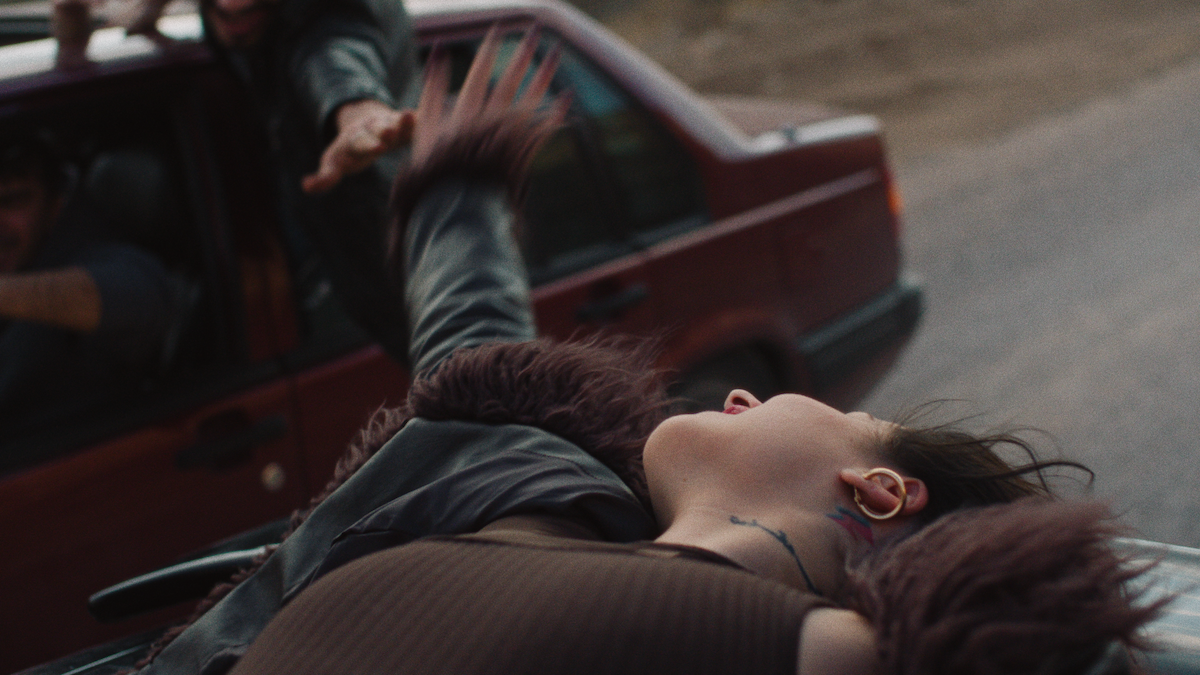
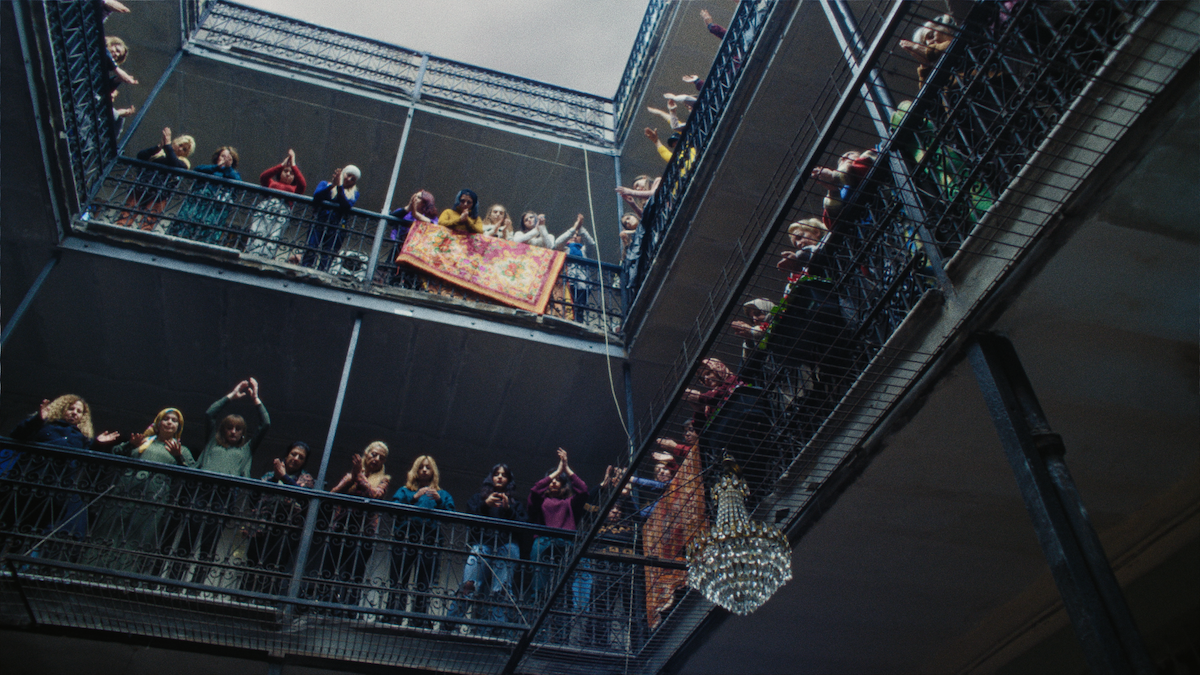
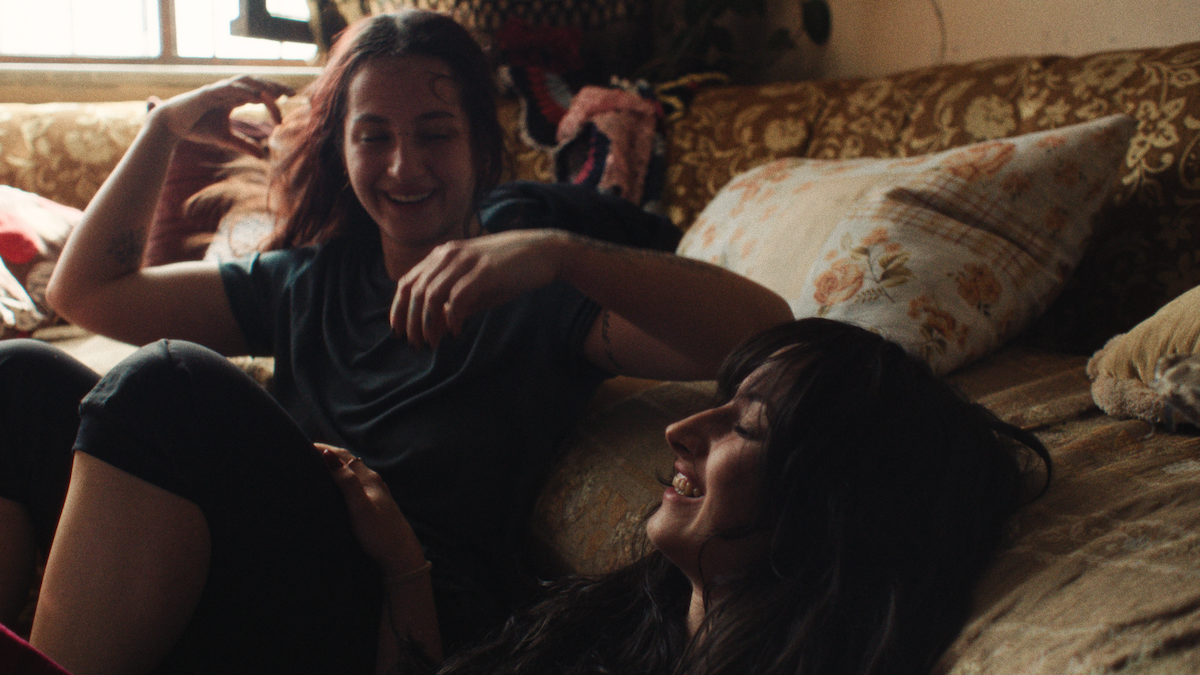
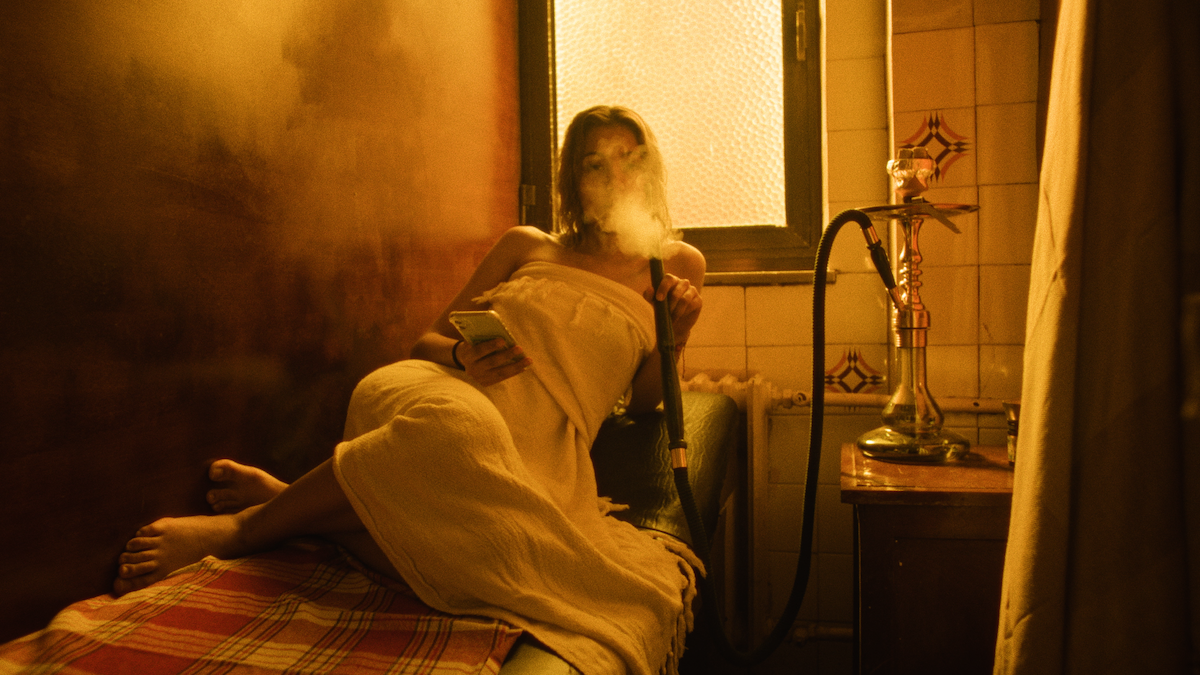
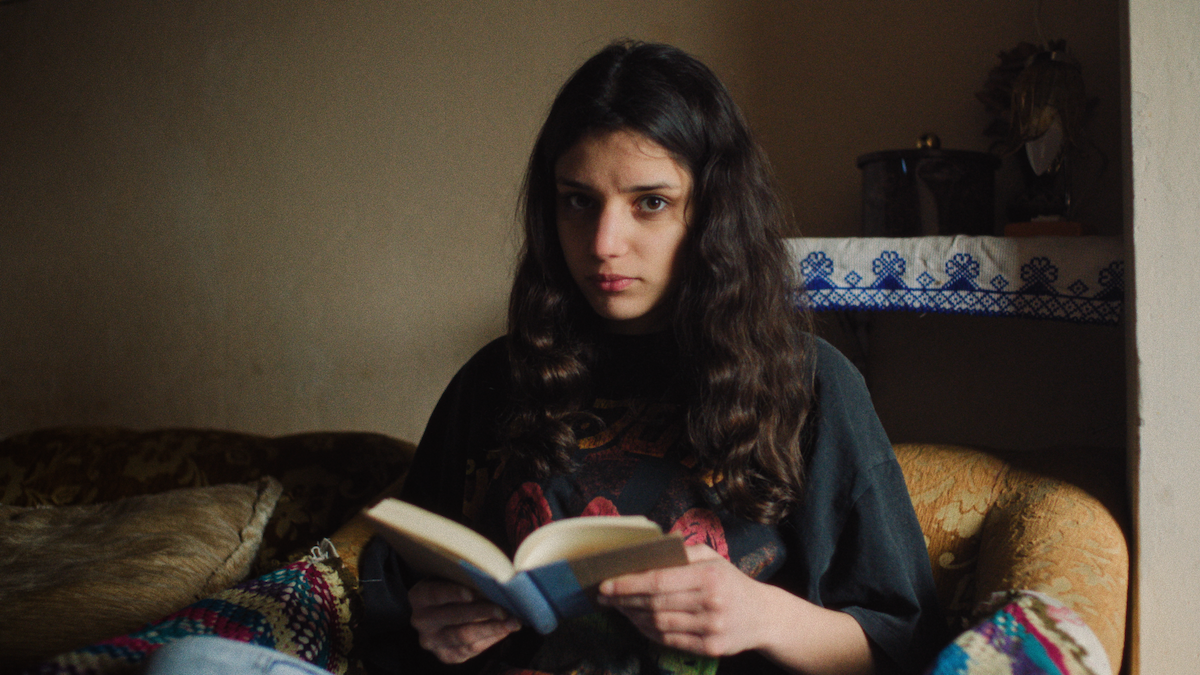
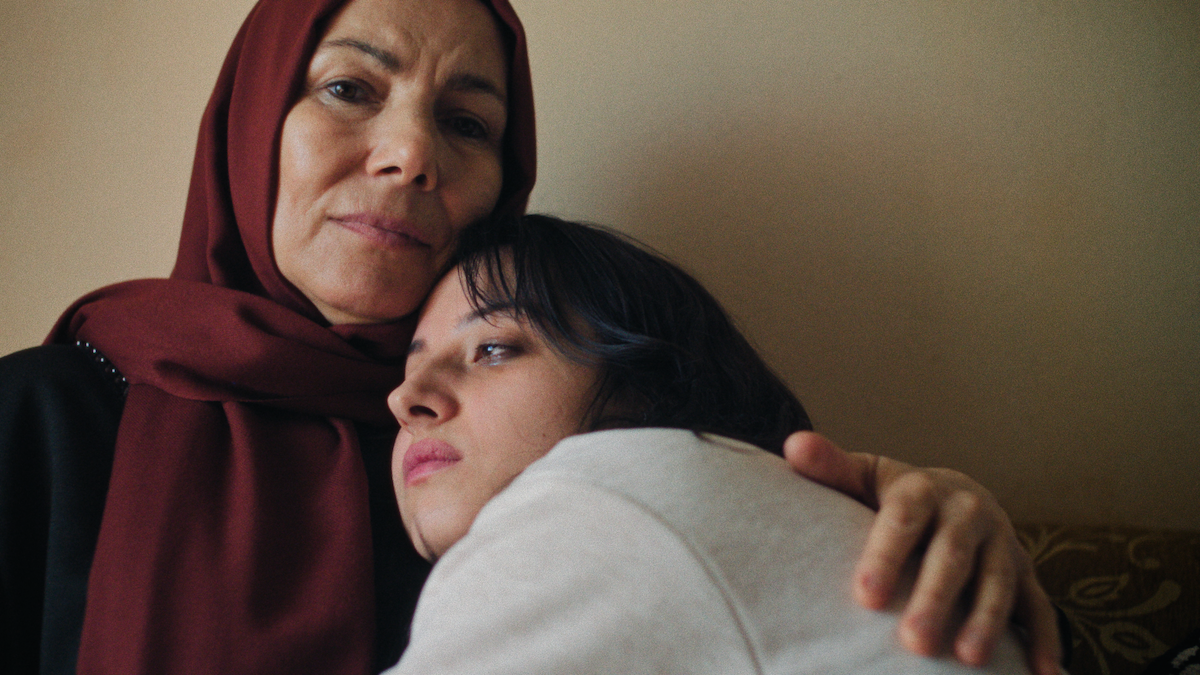
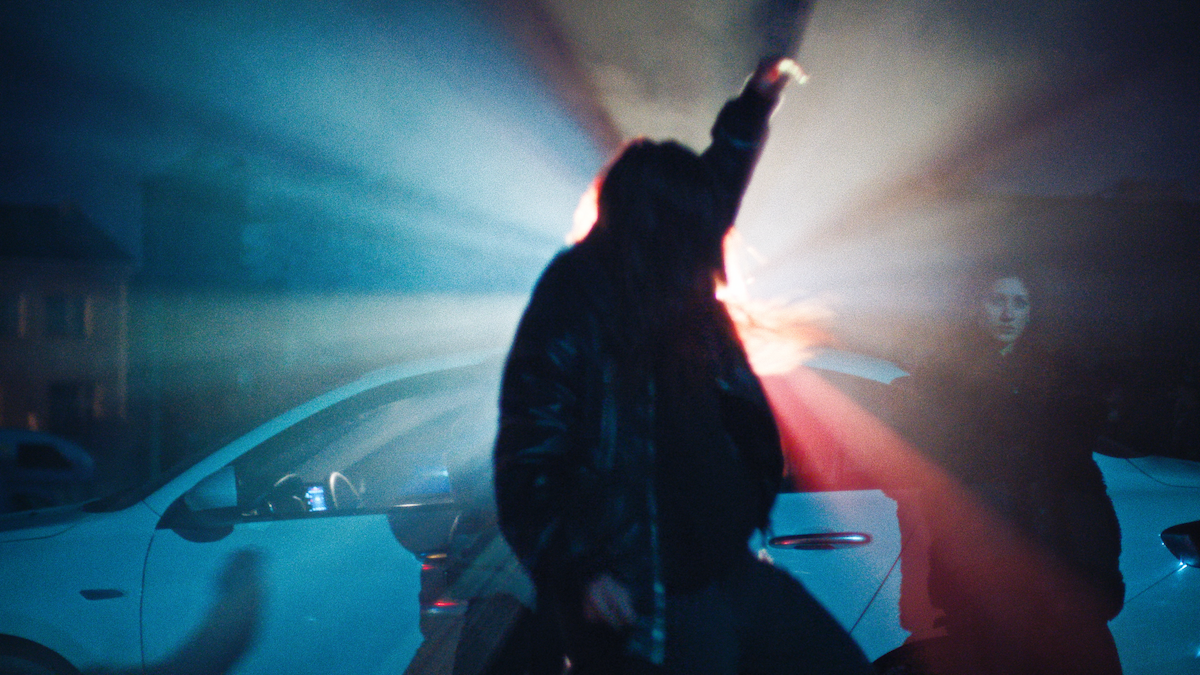
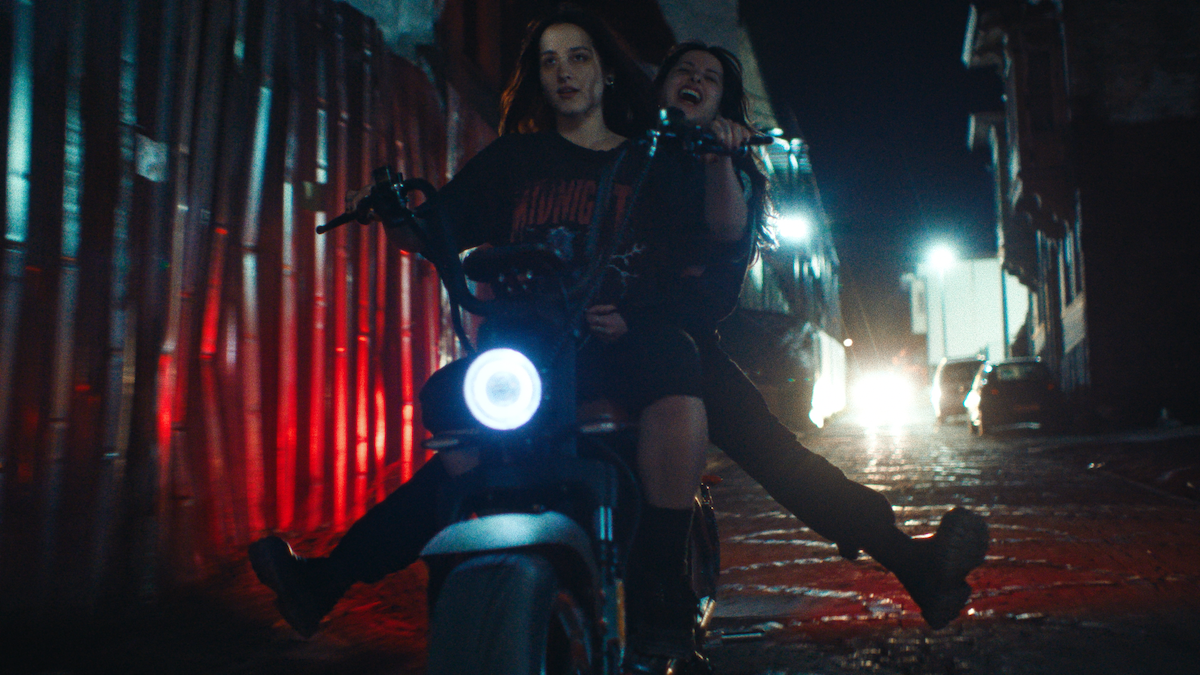
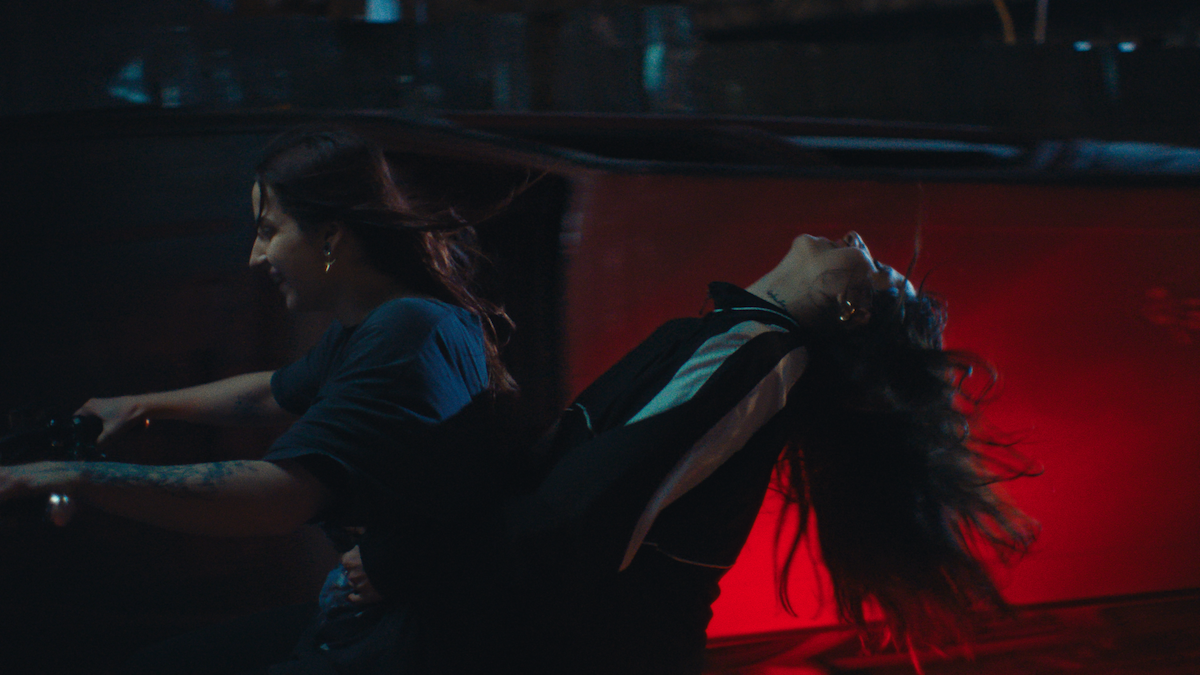
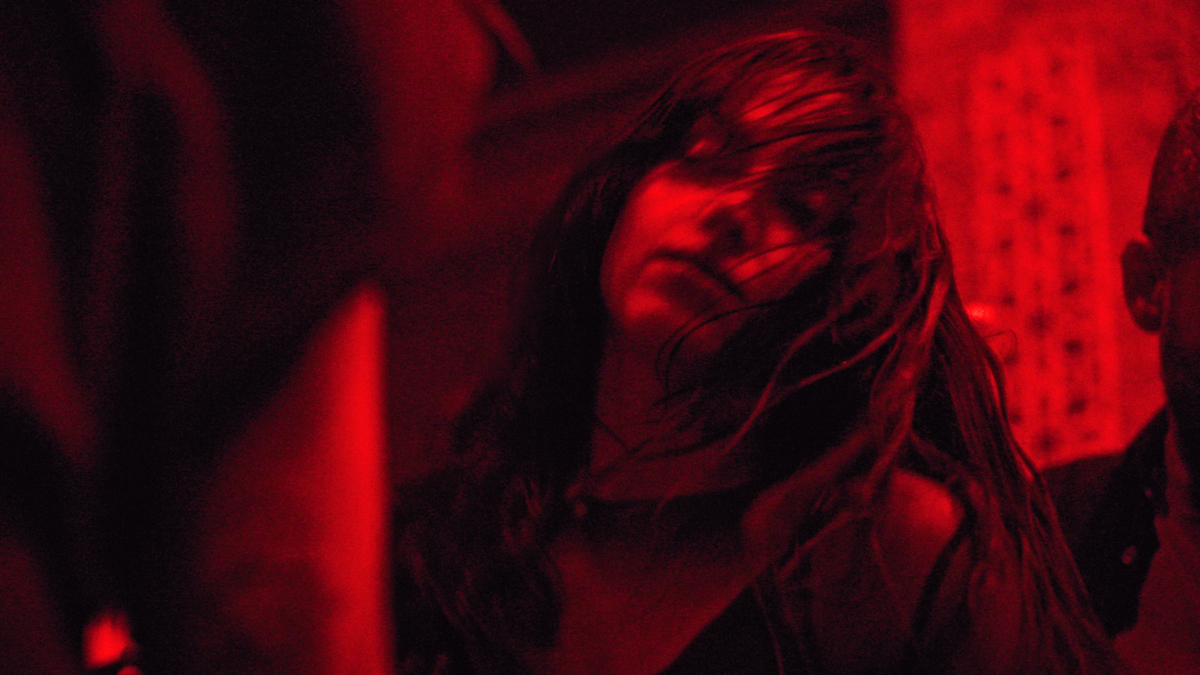
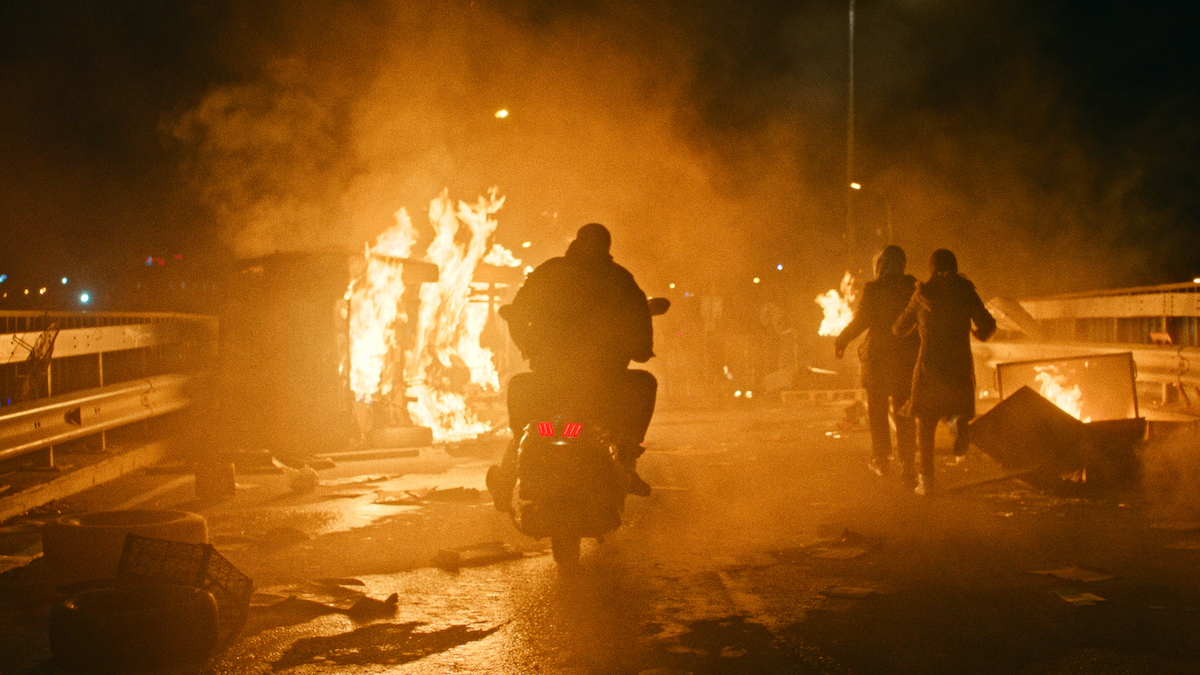
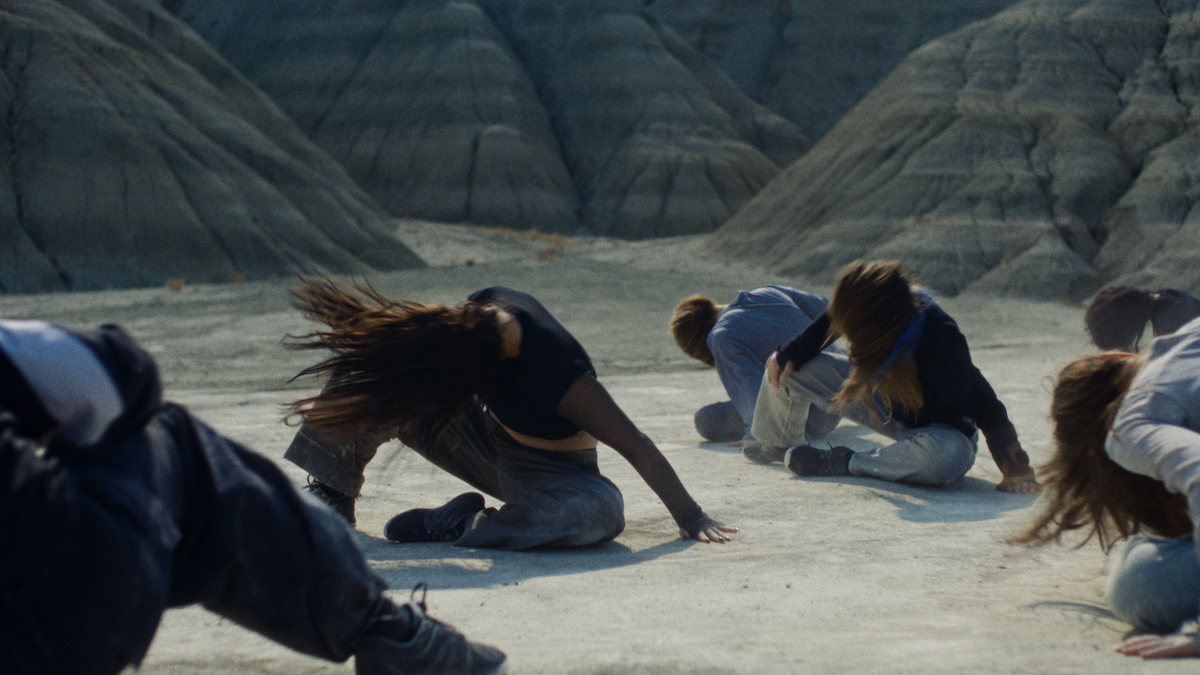
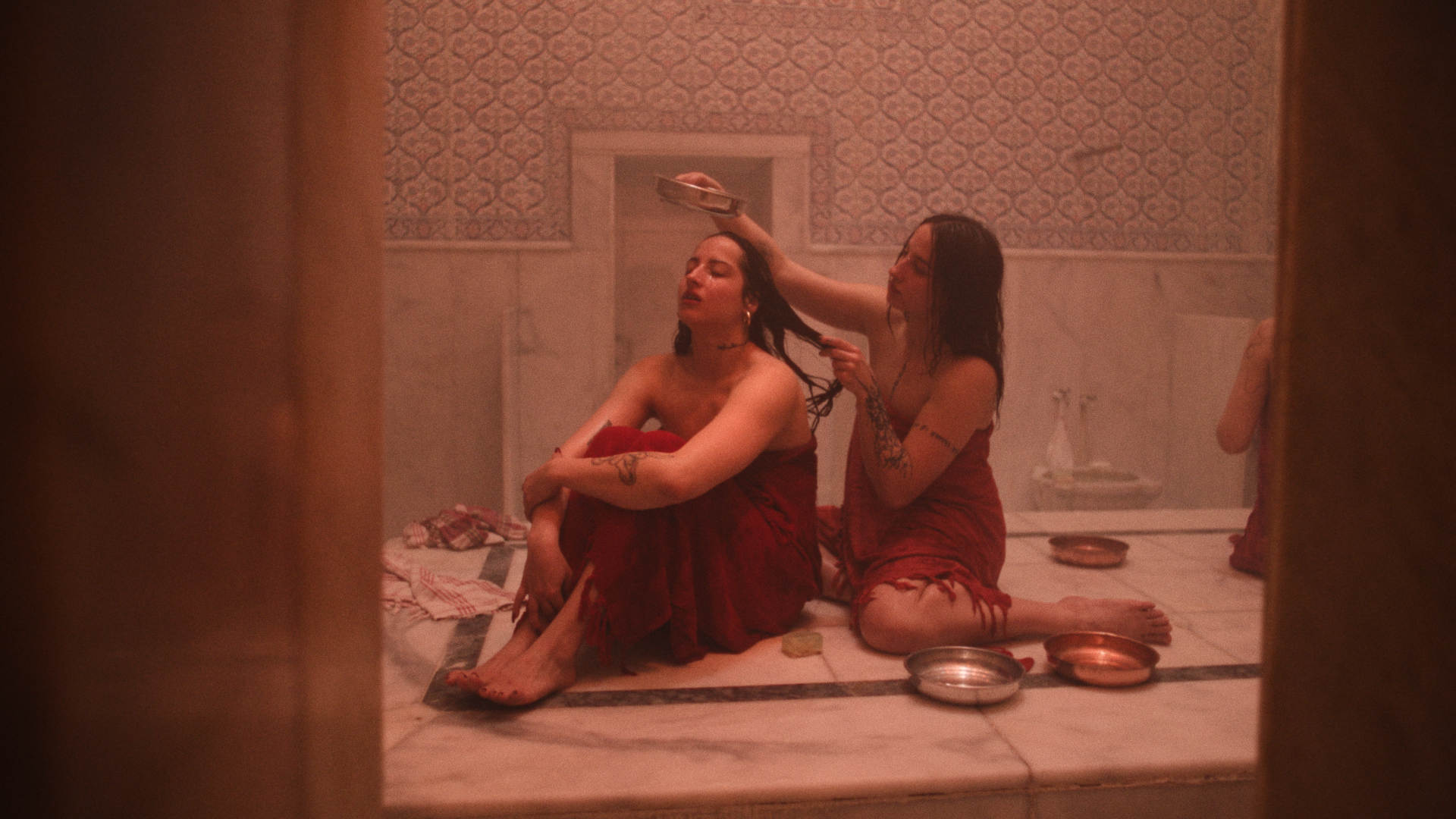
The track features renowned Palestinian singer, composer, and flutist Nai Barghouti, whose vocals reverberate throughout, eerily echoing a warrior princess war cry before giving way to an unexpected fusion of dubstep, jungle, and Arabic music. The Zaghrouta — a high-pitched rhythmic sound, or uluation, typically used as an expression of sorrow, joy, celebration, or reverence in Middle Eastern and North African cultures — combined with the percussion of the traditional darbuka brings forth a sense of melodic haste which is compounded by the erratic nature of each scene interpolated with flashes of girls and women defiantly staring down the lens of the camera. It becomes nearly impossible to look away, especially when confronted with glimpses of more intimate moments of familial or romantic affection.
In a rare instance of calm before the third and last drop, the camera pans in on a woman kneeling in prayer through a doorway before cutting to the trance-like choreography of women moving in unison in the middle of a desert. “It’s supposed to be a bit heavenly in some way. This is a film about resistance and yet this moment is about surrender,” Abbas says. “There’s an interesting juxtaposition between the movement of both and they mirror each other. You can choose your way to practice and there’s not just one way to do it. It can be a prayer or a dance. Both are about connecting to something greater and both are about vulnerability.” Though not meant to be a political or religious commentary — rather an expression of female passion, liberation, duality of culture, and choice — it decidedly becomes a conduit through which the viewer is meant to be moved.
This becomes glaringly clear in the final act where the protagonist is seen dancing alone in a dark alleyway. ”The truth of the reality is the fight is never really over. It kind of makes you feel like you’re in this collective struggle,” she says. “You can’t be numb to these images. I want you to feel something. I want us to feel something. You see her getting up and falling. Again and again. But she never stops breathing. She never stops fighting.”
Watch the music video below.
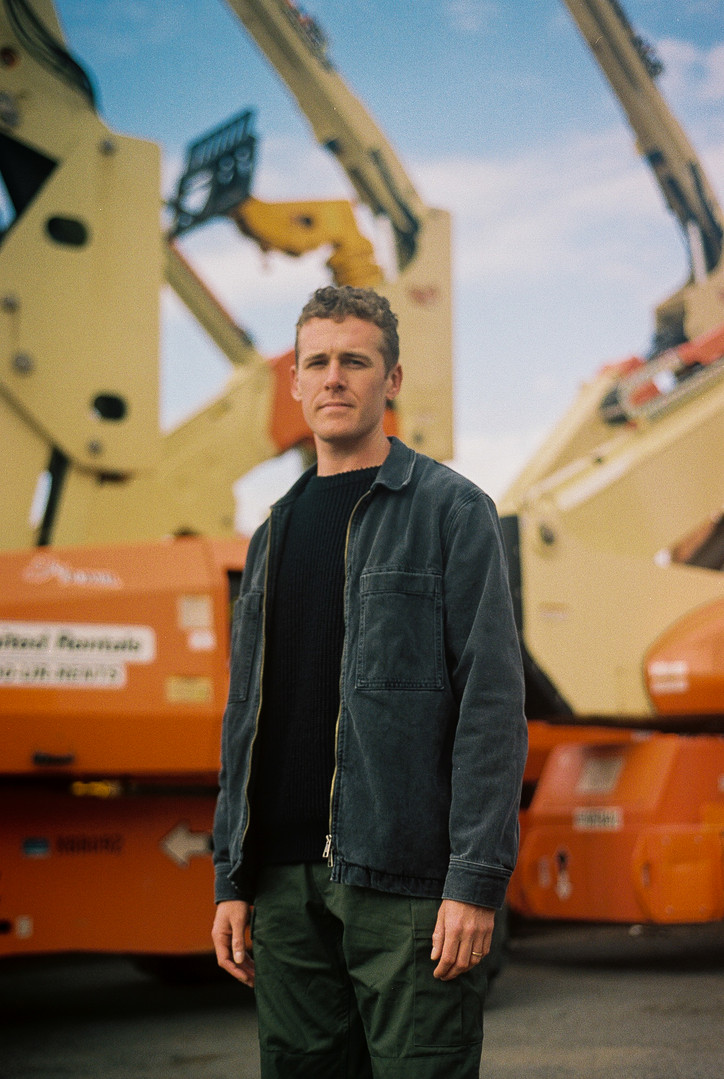
office had the chance to sit down and talk with Naples about making Orbs and the steps that led up to the making of the album, read below for the full interview.
You essentially have three titles: Producer, DJ, and label head. Does one take priority over the others? How do you manage to do all of them?
I definitely have a priority in that producing is the number one thing for me. That’s what I’ve wanted to do forever, That’s where my focus is for the most part — in terms of how I allot my time. It’s hard to put a spin on where 2 and 3 would be. I love DJing, and as much as I love sharing music I also love it as a way to be part of the music world. Not to be too hippie-dippy about it, but there’s a common bond around the world through music and it’s really special to be able to go around and share that with people. So that’s very important to me, but it’s less important for me to be the center of attention, which is something I really hate about DJing. So I have a love hate relationship with it, because it’s a way to interact with the world but it also puts me in this uncomfortable position, I’ve never found it easy to be the focal point. And then the label stuff, before I ever made music or was a DJ, I ran a little tape label in South Florida with friends. Sort of in the style of Not Not Fun. It was inspired by that era of music. I’ve always wanted to run a record label, DJing too, and making music as well. So I don’t necessarily see a hierarchy to it, but my primary passion is making music, so I think of myself as producer first.
Totally. But in hearing you talk, it sounds like they all pretty much inform one another, which is probably why you can balance them and let them coexist. It also sounds like the communal aspect is very important to you, in terms of music on a more general scale and how your specific pursuits help foster community.
Definitely. With the label that I run with my wife Jenny, most of the artists that we’re working with live within a few mile radius of where we’re at. Like James K is a few blocks down the street, Python is two blocks away, at one point Huerco S. was a few blocks away. So it’s always been a function of being apart of a community and trying to highlight that community. And the same goes for doing the parties and stuff like that. It’s always been about being apart of this bubble that I’m in. But it’s a big bubble, it’s not a small niche thing anymore, all of these people are touring around the world and stuff, so it’s cool to expand what we’re doing from Ridgewood to all over the place.
It’s super impressive. Other than the communal aspect, how does DJing inform your creative practice when producing music?
I’m always being exposed to new music. I think if I wasn’t DJing, it’s not that my listening taste would be different, but because I always have to look for new and fresh music, it sort of keeps me on my toes. Especially when you’re going out to clubs, you’re always hearing cutting edge music, so to me it’s very important to be out so I can be exposed to new music. I’m a streaming user and record buyer as well, but you’re always being directed towards things in these realms. But with clubs you’re really just being presented music by someone else’s taste and then it’s up to you to take to it or not. So I feel like it does inadvertently impact my creative practice because I’m always out listening to music, it’s always bleeding into what I’m doing. Producing-wise, if I go out and someone plays an amazing set, I’ll want to get home and make tracks. But, obviously, the more I stay out of clubs, the more I can make an album like this, which is not club-informed really.
This new project isn’t really grounded in any sort of fundamental structure, so what was driving the process? Was there some conceptual influence? Or was it all intuitive? How did the project come about?
I was in India in December and got back right after New Years and realized I hadn’t made music in seven months or something. My wife Jenny and I had been in Europe for a while doing a five year label anniversary DJ tour all over the place, and then we went to India. When we got back I was like I haven’t made music in so long, I almost forgot how the process worked. I didn’t come to the project with a narrative idea. I think often that’s kind of the focus on music projects these days, like “what is the story behind the record.” I’m not anti-story for other people, but with my own music, I have to admit that I’m just making music from a place of pure exploration. Unfortunately I don’t have a crazy angle for the record, which would probably be beneficial, but all of my records are a way for me to explain my feelings, I don’t really know how to describe that intuition. I remember reading this David Lynch interview where he’s talking about how ideas come to him — like people throwing puzzle pieces under a door, and you have to assemble the pieces and make it into something whole. He says it better than me, but I think it’s a good analogy, it feels fitting. I kind of just make things and don’t know where it’s going to go, maybe it’ll become this or that. I feel like that’s what I’m doing every time, until all of the sudden there’s a whole record there.
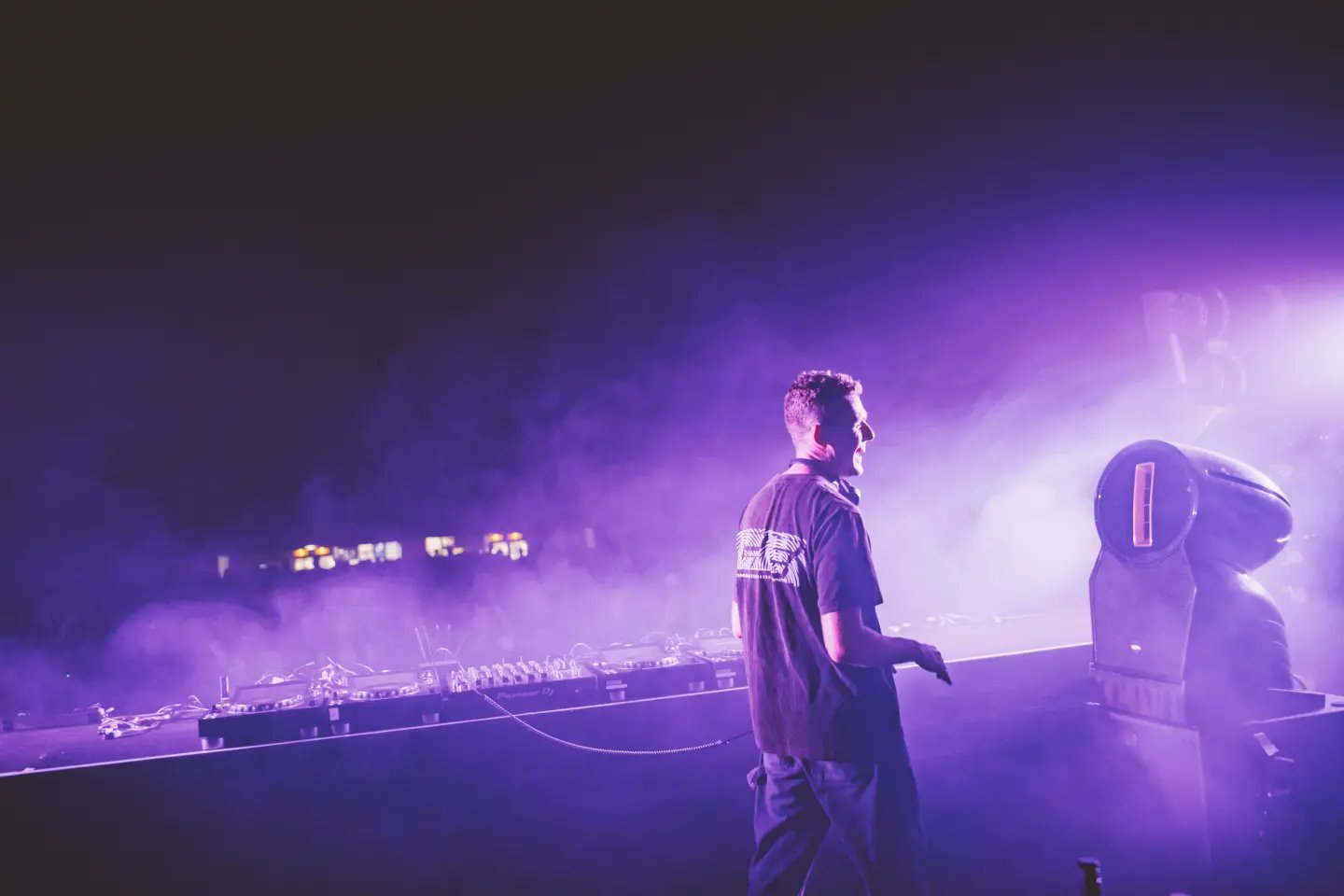
Personally, I don’t think it’s unfortunate that there isn’t some sort of conceptual angle. One of the many things I liked about the project was that it doesn’t feel over indulgent or pretentious, it feels very exploratory and genuine. If anything it’s refreshing, I think often times in music and in fine art, there’s this extreme pressure to substantiate the material work itself with some crazy conceptual narrative, so it’s refreshing and bold to hear you straight up say “no” to all of that.
For me the music is the thing, I don’t want to say that’s the story because it’s not a story, but that’s all there is to say about it. It’s hard when making instrumental music to try and imbue it with a distinguishing feature like a voice. Because I think with music that’s led by lyrics, it’s easier to be like “I don’t need to explain myself, just listen to the lyrics.” So when there are no words, I understand that people are looking for an insight into the process, but the process I guess is the same, you’re just leaving out the part which would explain itself more.
Were there specific artists or sounds that influenced Orbs?
When I did my record Take Me With You a couple years ago, I had very obvious influences, and when I did Fog FM, I hadn’t done a dance music album yet, and there were obvious references for that, but for Orbs, it’s hard for me to say that there were any explicit references when I was making it. If I told you what I was listening to at the time, I don’t think it would really reflect what the record sounds like at all. I was listening a lot to “Beware of the Monkey” by MIKE and “Foam” by Ulla. All sorts of stuff that I don’t think ever came into the equation of my own music.
That must have been kind of liberating, to not feel tied down to a very specific sound influenced by another artist.
Yeah, I guess that maybe just comes with time. I definitely was way more obvious about ripping off things that I liked when I started making music, which I think is pretty normal. These days I don’t sit down and try to make a track inspired by another artist. I guess it just comes with time, you get more interested in sounding more like yourself.
You said you took a break from making music for seven months, how was it reintegrating back into that process?
I feel like every time I sit down to make music I have to start over completely. I'll have an idea and almost get surprised by the fact that I made it. But a few hours in it’s like riding a bike and feels natural again. Taking a break made the process feel like it did when I first started making music, you come at it with this naive tendency that you can’t ever fully get back. But maybe you can get a bit of that initial excitement. I think some people make music like it's a job. Like “I work on music every day of the week.” Because the idea is that if you’re always in the chair making music that's when the idea comes and you’ll be ready at all times for it.
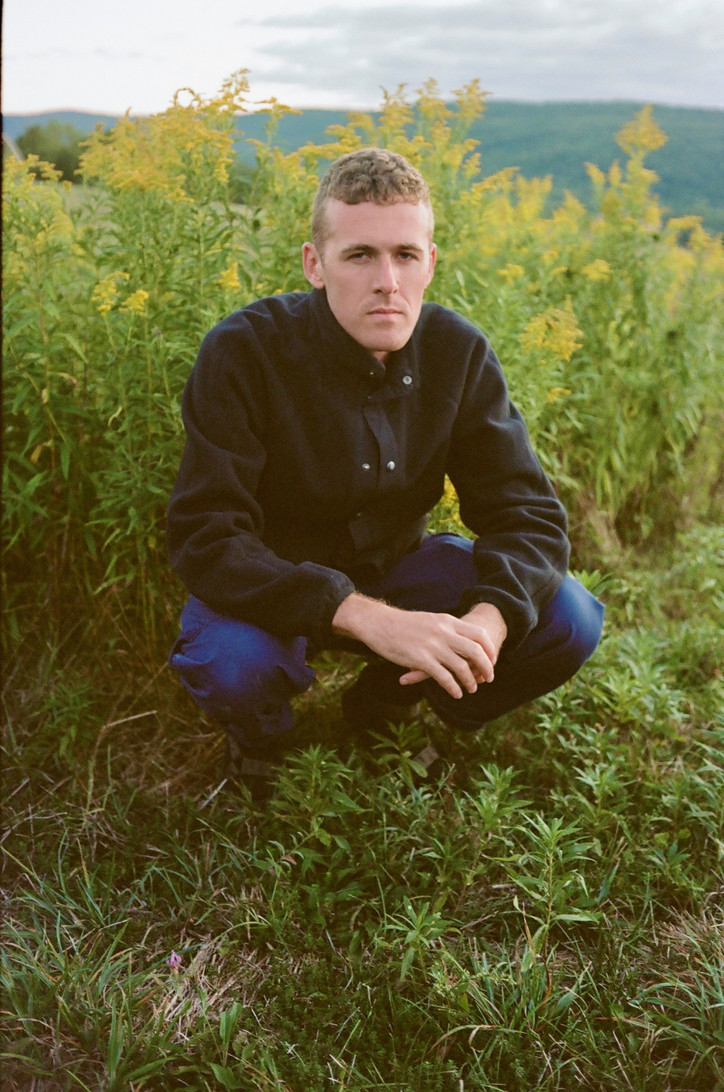
"Five beats a day for three summers."
Yeah, exactly. And I think that there's a lot of validity to that idea, but I also think that there's validity to stepping away from something and doing something completely different for a long time, and then coming back to it and being like kind of exposed and not sure of what you're gonna do.
That definitely resonates. I also think that in the creative process, when you’re working a lot, there are unproductive cycles that you can fall into, where you're sort of making the same thing over and over again, and it’s really hard to break out of that. So I think taking time away is one route to combat that. There’s nothing wrong with taking time away to see the work with fresh eyes.
Exactly, you gotta live your life.
Totally, so you have things to make music about, even if it's not conceptual, just new sonics in your head, all of that.
I have to be out in the world. talking to people, hearing new things, and reading things — so taking breaks is a big part of the process for sure. And going back to what you asked initially about the label and DJing, those things really help with that too. So that when I don't have musical ideas, I can focus on putting someone else's music out. And they trust me to do a good job, so if I’m sidetracked by trying to create a magnum opus or whatever, I'm going to be doing them a disservice.
Why did you initially decide to start Incienso?
I was running this other record label called Proibito, a terrible name which I took from the front of a Dean Blunt record. I was 21, and had a friend named will who started Sleeping Bag Records with Arthur Russell. I had been working with him at a record label and he found out I made music and he owned a pressing plant and said I should start a label and he’d press the records. It was too good of an offer to pass up at the time, so I started that label, very unsure of what I was doing. That had gone on and ran its course, I wasn’t getting demos at a certain point. So Jenny and I decided to essentially start the label over again under a new name. Doing it with her has been so much better, it had no direction before and I was just fumbling around. I lived in New York and then moved to LA and then to Berlin, and it was a very messy time, a very fun time, but a very sporadic time. So I came back to New York, we met, and that’s when I started the label, it just felt like a new era.
What do you want people to take away from the new album?
I feel like at this point I’ve gone pretty far down the line to figure out what my sound is, and I arranged this 43 minute piece of music very particularly — it’s an album in the sense that it's set up to listen to from beginning to end, and I think there’s a lot of beauty in the format of an album. But I think that every time I make an album, I'm trying to chisel out to the same place. I’ll never fully get there, but I hope that when people listen to it they’ll be inspired to think outside of only making two minute songs. Maybe it’s a little on the nose to call it Orbs, because in my mind it’s trying to be a sound world, but I hope that people can step into that for a second. I just want to be heard, in the same way that I hear other people out.
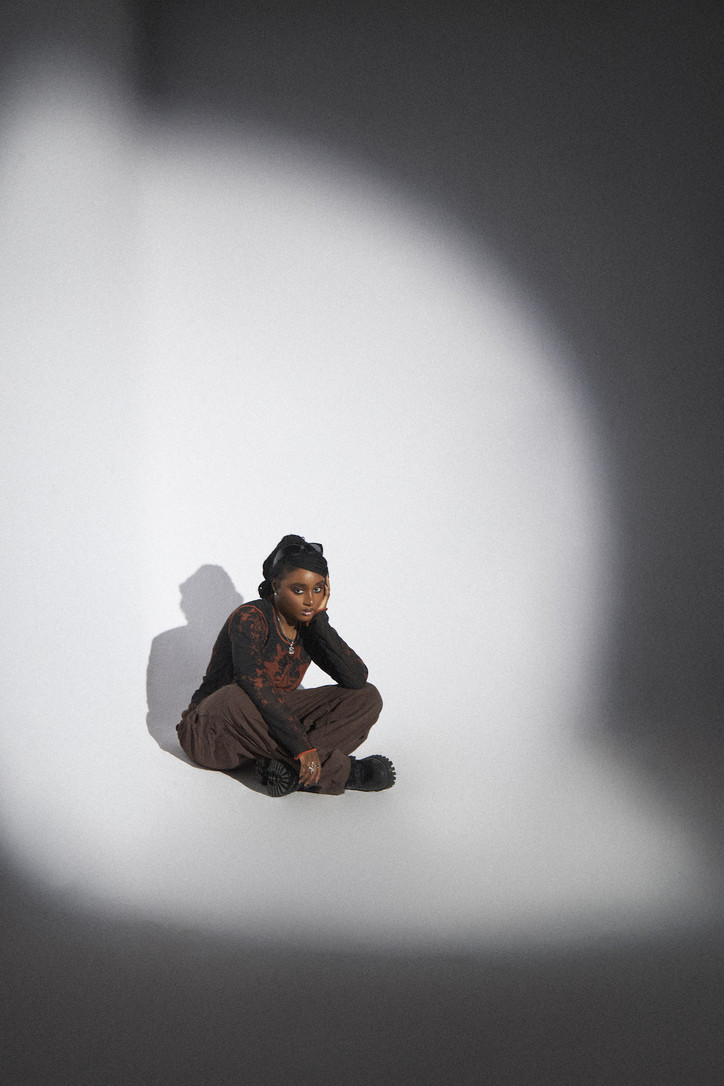
Your single, "HTKAM (How to Kill a Man)," was described as equal parts sadistic and seductive. Can you tell us about the inspiration behind the song and the emotions you aimed to convey?
Although I was not coming from a seductive point of view, the song is more of a humorous way to express my disdain for misogyny.
In your music, you seamlessly blend Afro-pop and psychedelia while infusing aspects of your West African heritage. How do you navigate between different genres and cultural influences to create your unique sound?
It’s just simply what I grew up on. In high school, I listened to a lot of music and that influences what I make today.
Your latest single, "I Don't Like You," has been gaining momentum. Can you share the story or message behind the song, and what makes it resonate with your audience?
People tend to be diplomatic in their life. However, I’ve made myself a mascot that they can vicariously live through.
How did you approach crafting this body of work, and what themes or emotions were you exploring throughout the project?
For me, it always starts with the message. And from there, I go into figuring out how I am going to produce it. When I am making the beat, I’m pretty much telling the second part of the story.
Ever since I heard “Mad Apology,” I haven’t stopped playing it. It’s honestly such a vibe. What’s the meaning behind the title?
It comes from the phrase, “Mad O” in Nigeria. It’s a sarcastic way to say, “Interesting.”
The music video for "I Don't Like You" is so sick. What was the creative process like in bringing the song to life visually, and how does it enhance the overall message of the track?
I pretty much went with Santi’s creative direction. He is such a wonderful director. And it was a very fun overall experience.
As a singer-songwriter and producer, you have a multifaceted approach to your music. How does your background as a producer influence your creative process as an artist, and how does it contribute to the unique sonic experience you create?
I don’t think my music will exist in a way that it does without my production. I have a specific sonic that resonates with me, and everything is part of my overall identity.
Your collaboration with Rema on the Black Panther: Wakanda Forever Soundtrack, "Wake Up," now has more than 3 million plays on Spotify. How did this collaboration come about, and what was it like working on a project with such cultural significance?
It was just a fun experience overall. I learned a lot and I was really grateful. ANGER MANAGEMENT has such a strong, powerful energy.
What do you hope listeners take away from the EP, both in terms of the music itself and the emotions or experiences it evokes?
I hope people are able to learn from my experience. And if they can relate, it helps them gain more clarity as well.
How do you see yourself evolving as an artist in the future?
I just want to grow as a person. You can’t grow as an artist without growing as a person. And I hope the growth reflects in my music.